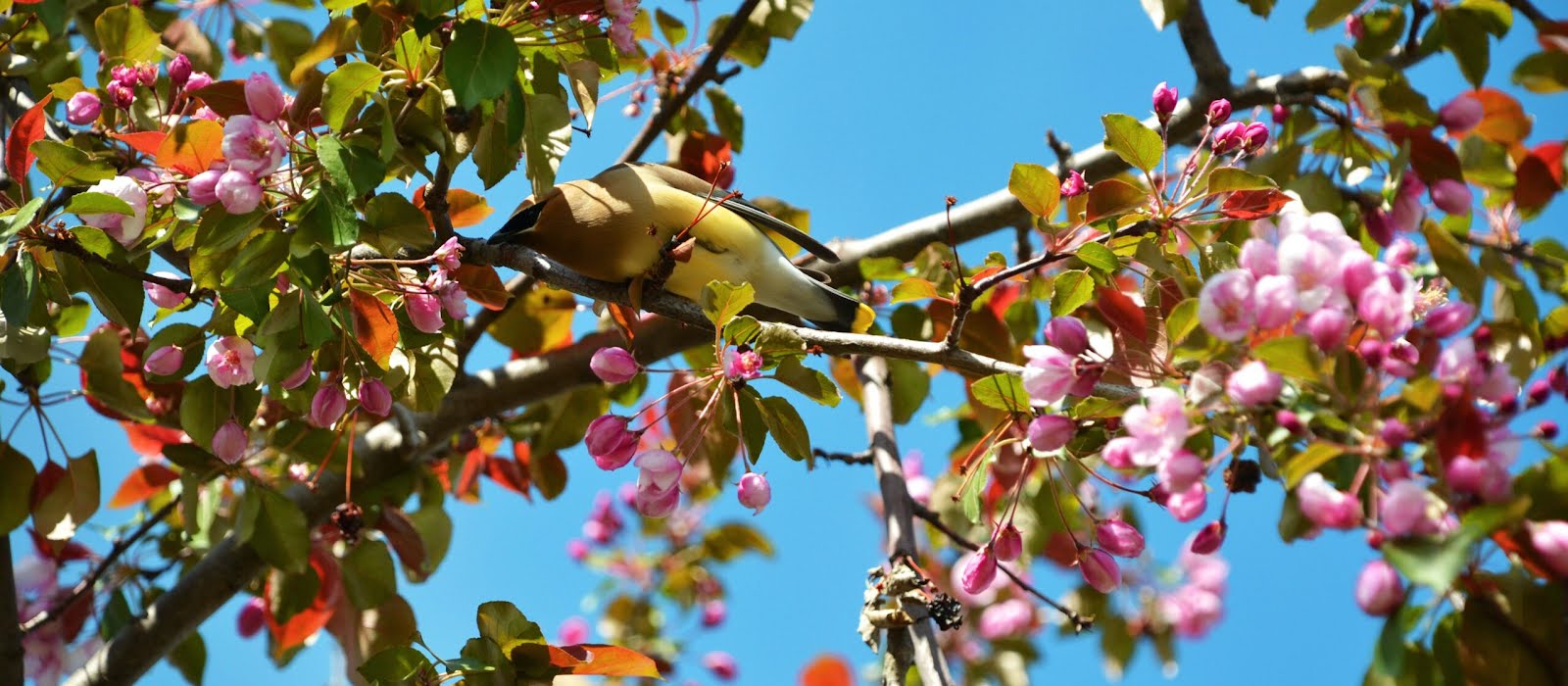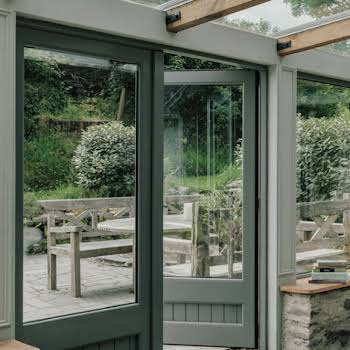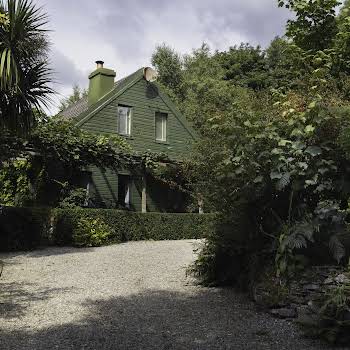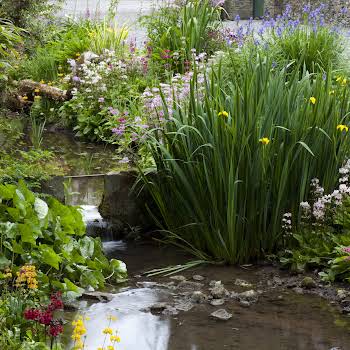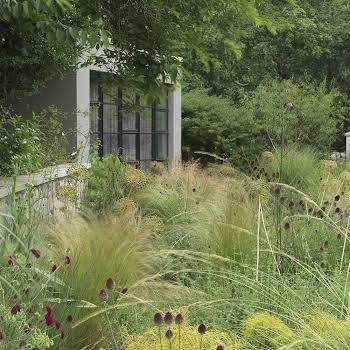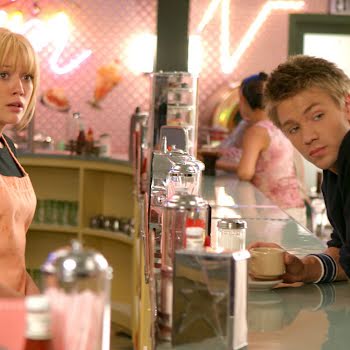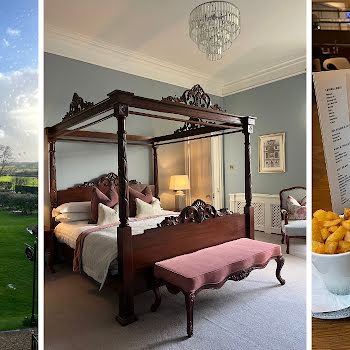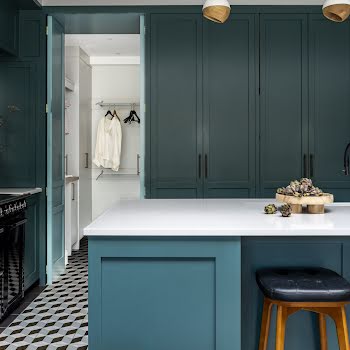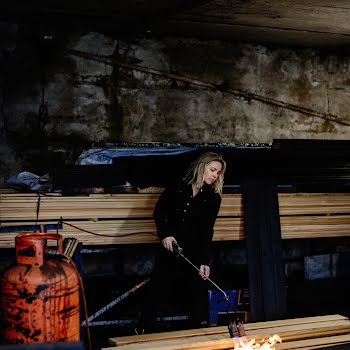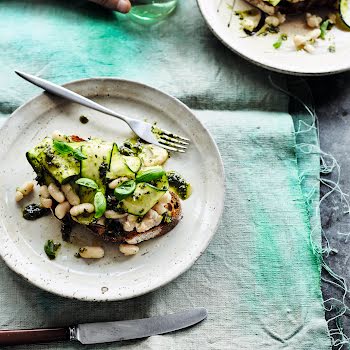
Garden designer Nicola Haines shares how to create an urban oasis that is good for you and the environment
Urban gardens provide a much-needed place to relax and unplug, but they can also be challenging spaces to design. Garden designer Nicola Haines shares some secrets for maximising the potential of your garden, while simultaneously supporting the environment.
Landscape designer Nicola Haines designed the Citroën Power of One show garden at last year’s Bord Bia Bloom, which returns again this year from May 30 – June 3 in the Phoenix Park. She knows that the three main challenges that many small urban gardens face are privacy, noise, and air pollution, but it’s possible to tackle all three, without a huge budget, and keeping the environment in mind. Here, she shares some ideas to get started.

Privacy
Even if you love your neighbours dearly, the likelihood is that you want some space away from them sometimes. We all need our own little oasis where we can escape from the world for a short while, whether that’s with a morning coffee, an evening tipple, or just to curl up with a good book.
When people first move into a new home that is overlooked by other buildings, many are tempted to install fencing or trees around the full perimeter to block their neighbours’ views. This can be an expensive process and while you will achieve your desired level of privacy, you might also find that your light is reduced and your home and garden now feels very enclosed.

Rather than tackling every angle, I always recommend choosing one area in your garden which can be easily screened off with planting, a structure, or both. This could be a pre-made steel or timber pergola or awning which you can buy from a garden centre or other supplier, or a pergola that you can build yourself with some help from YouTube tutorials if needed.
Add some climbing plants like jasmine (Trachelospermum jasminoides), a beautifully scented evergreen climber, and you can softly curtain your space away from prying eyes. Grasses and perennials planted in beds or within raised planters will provide some coverage at lower level.
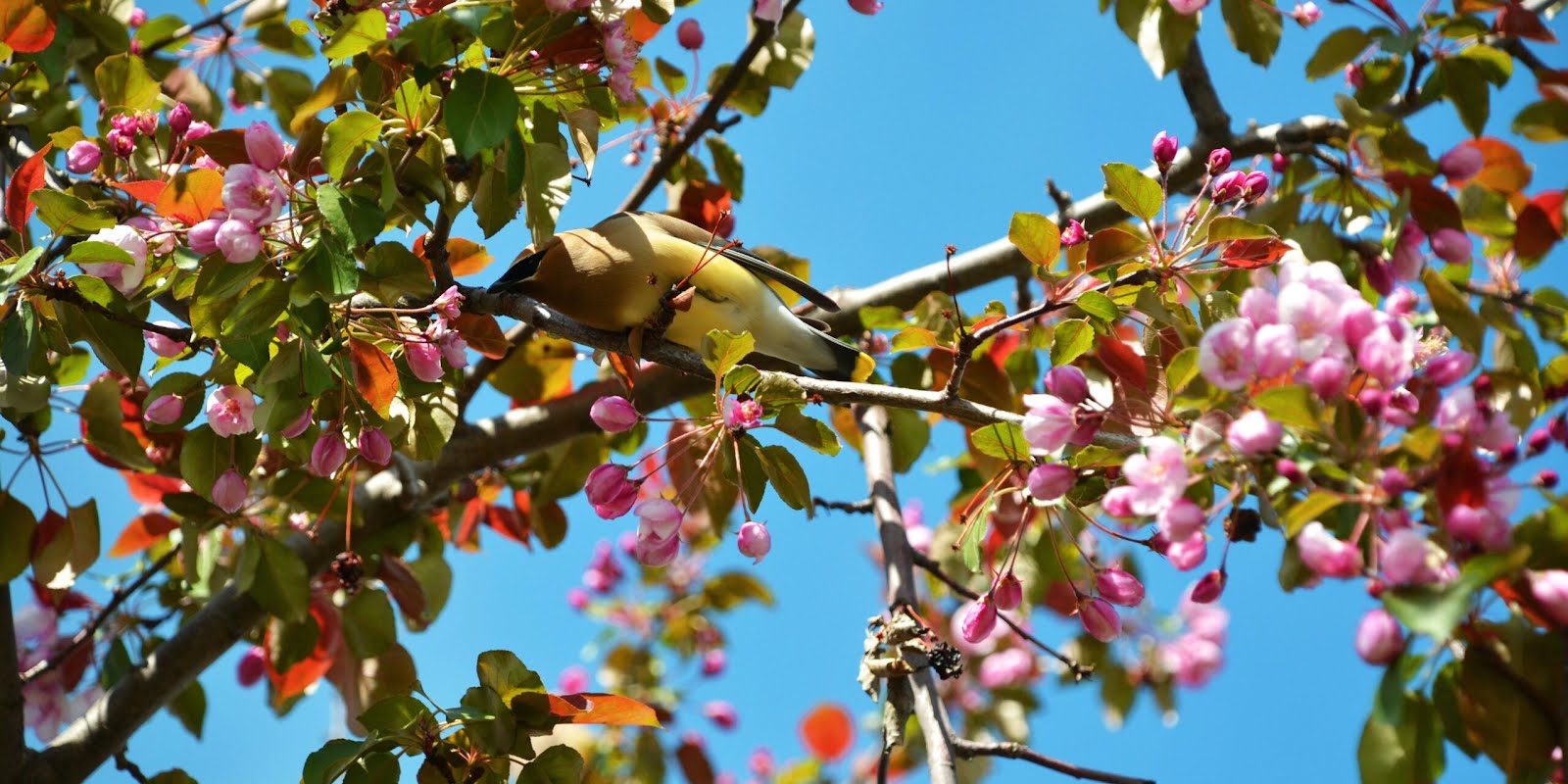
Noise Pollution
Planting also helps to absorb sound, although in a small urban space you will never be fully able to block out the noise from nearby roads or raucous neighbours. Put the densest planting nearest to your screened-off seating area, rather than closest to the noise. This will help muffle the sound in the place where you unwind. The secret is to go for a good mix of evergreens with different leaf shapes. The fine leaves of Irish Yew (Taxus baccata) means that this native hedge or tree is very good at absorbing sound.

If the honks of car horns or beeps of delivery trucks are still disrupting your peace, then consider adding a small water feature to take the edge off the noise. You don’t need to build something akin to Versailles with all the associated plumbing and maintenance costs! Plug and play water features have exploded on the market in recent years and they are something that everyone can enjoy, no matter what budget you have at your disposal.
Air Pollution
Air pollution is harder to tackle in a small urban garden but there are steps you can take to clean the air around you. Franchet’s cotoneaster (Cotoneaster franchetii), with its furry leaves, has been proven to absorb a lot of particulates. It is an evergreen shrub which flowers in summer and produces fruit in autumn and winter, so not only does it help clean the air, it also delivers much-needed sustenance for pollinators and wildlife.

While environmental research in this area is still in its infancy, what we do know is that by planting as much as we can, we can help to absorb CO2. In terms of our own gardens, this means devoting more space to soft landscaping rather than hard landscaping and reducing the size of our lawns to make way for more pollinator-friendly planting and meadows
Supporting Nature
My Citroën Power of One show garden at Bord Bia Bloom last June highlighted the power that one small urban garden can have to tackle the effects of pollution and positively contribute to the environment. While the sheer scale of the climate crisis can feel overwhelming at times, there are simple measures that we can all take that can make a real difference.
The first step is to understand that your garden or outdoor area isn’t just for you, it is a space shared with wildlife. It is incumbent on us all to support nature and in a domestic garden, that means carefully considering your planting scheme. Rather than simply choosing ornamental plants based on looks, ask what impact they will also have on the environment. Do they benefit pollinators or provide habitats and sustenance for birds and other wildlife? Aim for as much diversity as possible, plant native where you can, and try to include a range of plants that flower over long periods, thereby reducing hunger gaps.
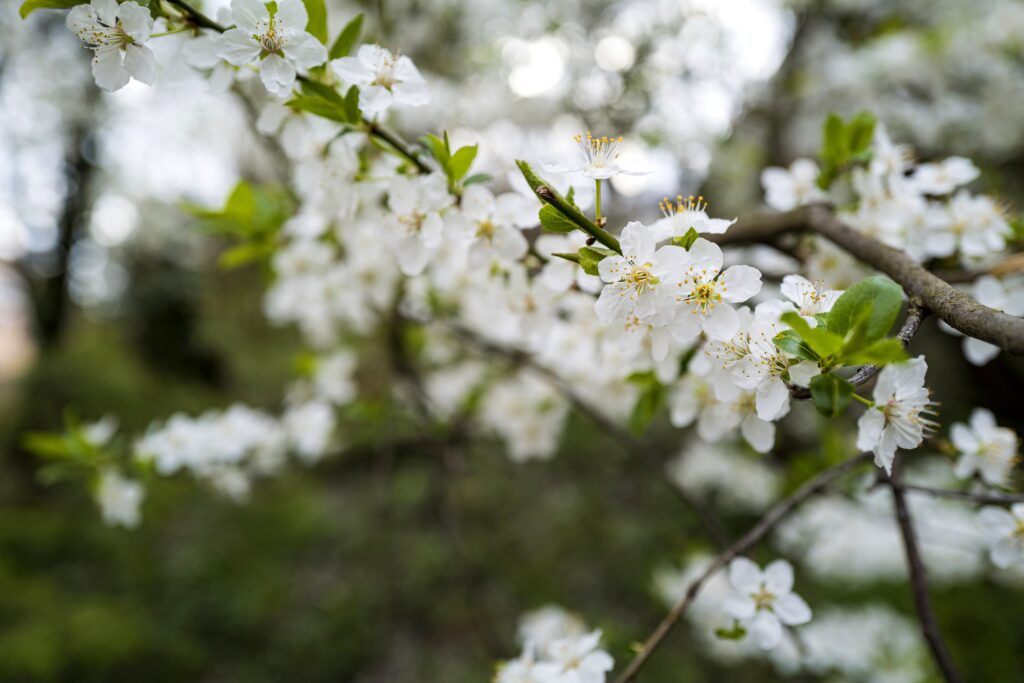
One of our most common native specimens, Hawthorn (Crataegus), is the most giving of trees. It flowers in May and June and produces fruit in late summer that ripens over autumn and winter. Crab apple (Malus) is another great choice and both specimens can work in small gardens or planters where space is limited. Whatever challenges you face in terms of the size, location, and orientation of your garden, there are plants to suit you and your wildlife visitors. The staff in your local garden centre will be able to help you find the perfect match.
Nicola Haines is an award-winning landscape designer and partner in Tierney Haines Architects, a practice she runs with her husband, Stephen. She works on all scale of public and private projects, as well as community-based and educational gardens. The Citroën Power of One garden was her fourth show garden for Bord Bia Bloom.
This is an updated version of an article originally published in May 2023.











